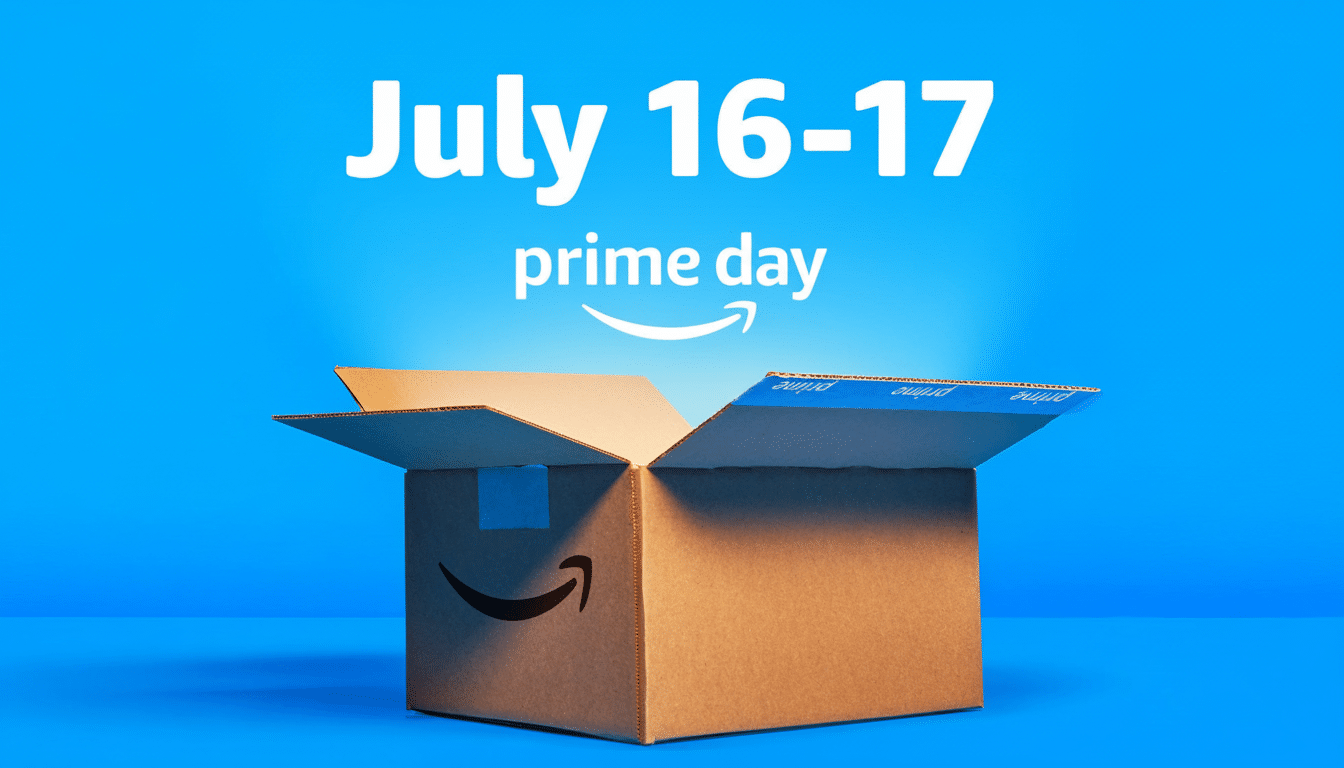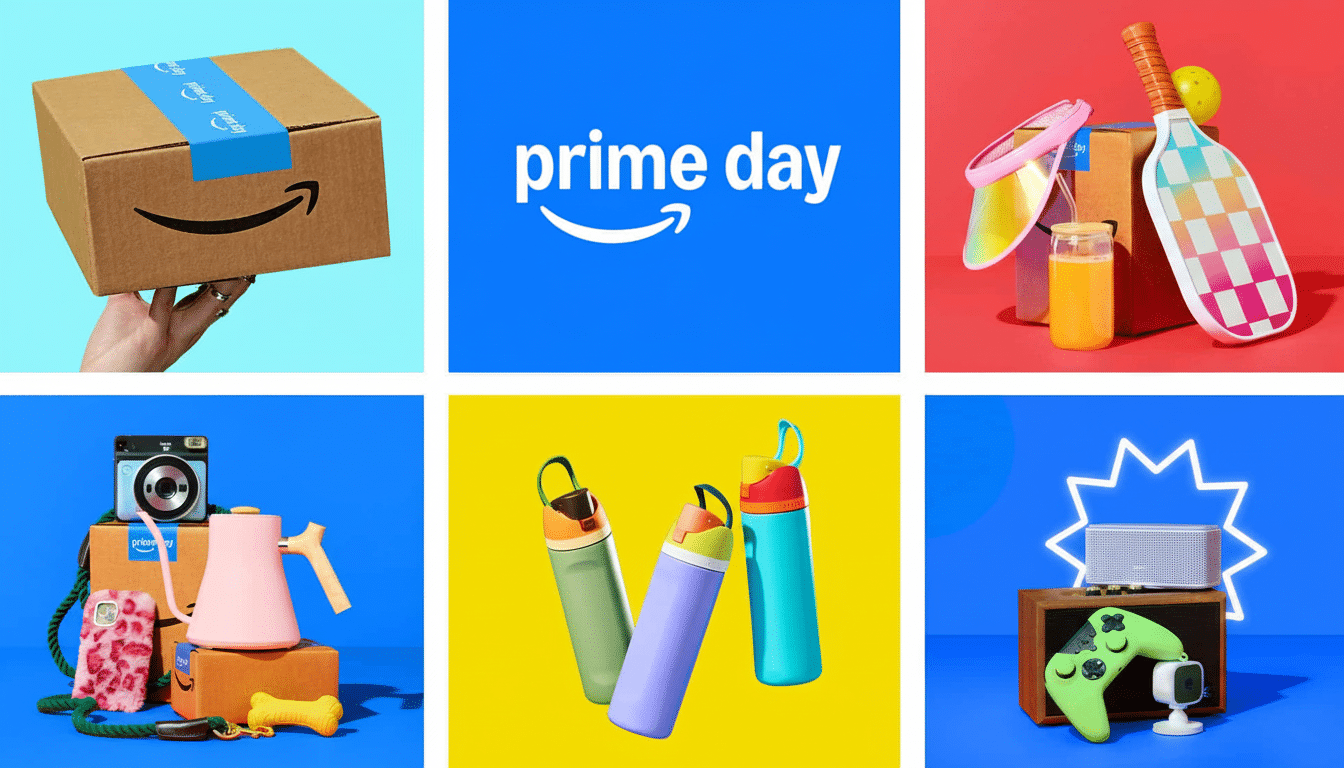Big Deal Days are sort of the most hushed-about time of year to upgrade an exhausted rig, and this round of Prime Day monitor deals is a bona fide tire-kicker savior. Savings are falling on everything from color-accurate 4K panels to blisteringly fast OLED and QD‑OLED gaming displays, as well as surprisingly capable portable monitors that suit the needs of hybrid workers. The trick is understanding which specs matter and which markdowns are legitimate — not just jacked-up list prices pretending to be deals.
According to industry watchers Circana and IDC, the market for monitors ran hot during the work‑from‑home surge and then cooled, which resulted in heavier promotions as brands cleared inventory and pushed newer tech like OLED and USB‑C docking. That amounts to some unusually good value, including mainstream 27- and 32-inch 4K IPS displays dropping below $250, previous-gen top-tier gaming panels discounted by 30% to 40%, and portable screens available far cheaper than on the street.

Why These Prime Day Monitor Deals Are Worth Your Time
Monitors aren’t as prone to annual refreshes as phones, so making a good purchase here can pay dividends for years. Per Display Supply Chain Consultants, panel costs are down from their pandemic peaks, and OLED maker competition is broadening options at the high end. When hardware prices drop and retailers tack on event promos, you end up with some deep price-to-performance wins.
Electronics events typically promote large percentage‑off discounts that don’t lead to a windfall in terms of value. A quick sniff test can tell you: if a height‑adjustable stand and at least 95% sRGB coverage can be purchased for <$250 in a 27″-sized box with 3840×2160 pixels of IPS, it’s really in the game. Any 27‑inch 1440p 240Hz IPS or OLED from a known brand which falls below ~$600 is going to be a tier jump for most gamers. And when a 32‑inch 4K 120Hz, or a 49‑inch ultrawide OLED goes at least 25% off its recent street price, you’re in unusual company.
Gaming Monitors That Live Up To Their Hype
Today’s sweet spot is 27 inches at 1440p and a 240Hz refresh rate for that esports smoothness and everyday sharpness. IPS options offer strong motion handling and wide viewing angles, while OLED (and QD‑OLED) drives toward near‑instant pixel response and pitch‑black blacks for single‑player showpieces. Things like the LG UltraGear 27‑inch 240Hz IPS and the Asus ROG 27‑inch 240Hz OLED also frequently experience healthy event price cuts, while high‑end offers on 32‑inch 4K QD‑OLEDs with a refresh rate of up to 240Hz (hardly anyone’s credibly faster) from Alienware and Samsung are finally slipping from aspirational to semi‑attainable.
For credibility, seek out true variable refresh rate support (AMD FreeSync Premium or Nvidia G‑Sync Compatible), low input lag figures provided by respected reviewers, and emerging clarity metrics such as VESA ClearMR rather than trusting hopeful 1ms GtG marketing claims. And look at HDR too: VESA’s DisplayHDR 400 is entry level; DisplayHDR 600 and up, or OLED with high APL brightness, actually give meaningfully better highlights. If a deal combines these key elements, then you’re not just investing in frames — you’re also purchasing some headroom for your next GPU.

Sharp 4K Panels for Work and Relaxation at Home
Productivity monitors have surreptitiously emerged as the value heroes of this cycle of sales. A 27‑ or 32‑inch 4K IPS with a spine that bends every which way, ten bits, factory calibration so your photos don’t turn out green, and maybe even some AdobeRGB coverage: photo edits at high resolution, spreadsheets that don’t demand sunglasses, and timelines where you can finally make out the teeny tiny print. Dell’s S‑series 4K IPS line dips into the mid‑$200s or less, and that price difference‑to‑clarity jump from 1080p matters in text and UI density.
If you can stretch, make sure whatever model you’re looking at includes USB‑C with 65W power delivery to run a laptop from a single cable, and look for built‑in KVM switching so you can hop between your work machine and a gaming PC. It does help to have 95%+ DCI‑P3 coverage for creative work, but sRGB clamp modes are still critical to avoid oversaturating the web workflow.
Portable Screens For Travel And Second-Desk Setups
When it comes to portable monitors, you used to get what you paid for — which wasn’t much. Slim models from 15.6 to 17.3 inches with 1080p resolution that receive power and video over a single USB‑C cable can toss in a spreadsheet or Slack pane without an additional dock. Budget options from Arzopa regularly dip below standard pricing during Prime events, and the 144Hz models serve as a solid console or gaming laptop option on the go.
Look for a good integrated stand or folio, 300‑nit brightness or better — we need this to fight glare in the coffee shop — and color performance that won’t crush your shadows. There will be trade‑offs — most portables can’t match the contrast or uniformity of desktop displays — but the productivity gain is real and comes with minimal cost and carry weight.
What to Look for in a Monitor Deal on Prime Day
- Verify historical pricing. Use price trackers like Keepa and CamelCamelCamel to avoid the pre‑sale price‑hike trap; good deals undercut recent averages, not just inflated MSRPs.
- Match specs to use. 240Hz at 1440p is more important for competitive gamers than having 4K content at 60Hz. Creators and coders often benefit most from 4K clarity, USB‑C docking and an adjustable stand rather than extreme refresh rates.
- Scan the fine print. Other features to consider include panel type (IPS, VA or OLED), support for variable refresh rate (VRR), compatibility with a VESA mount and warranty terms, including pixel policies for OLED displays. If there’s also a brightness accolade or HDR certification, it should be stated — not insinuated.
- Consider longevity. IDC’s shipment data indicates monitor replacement cycles are significantly longer than four years. For a bit more, the right ports (HDMI 2.1, DisplayPort 1.4/2.1, USB‑C with power) can save you adapters and premature upgrades.
The Bottom Line on This Year’s Prime Day Monitor Deals
The best monitor deals of this Prime Day aren’t mere percentage signs, but real upgrades that will sharpen your workflow and unlock smoother play. Focus on panels that accommodate your work or play profile, verify that the discount is a good deal and lean toward features that future‑proof. Done well, you make off with a screen that’s better to look at, snappier to use and saves more time and money long after those sale banners flutter away.

